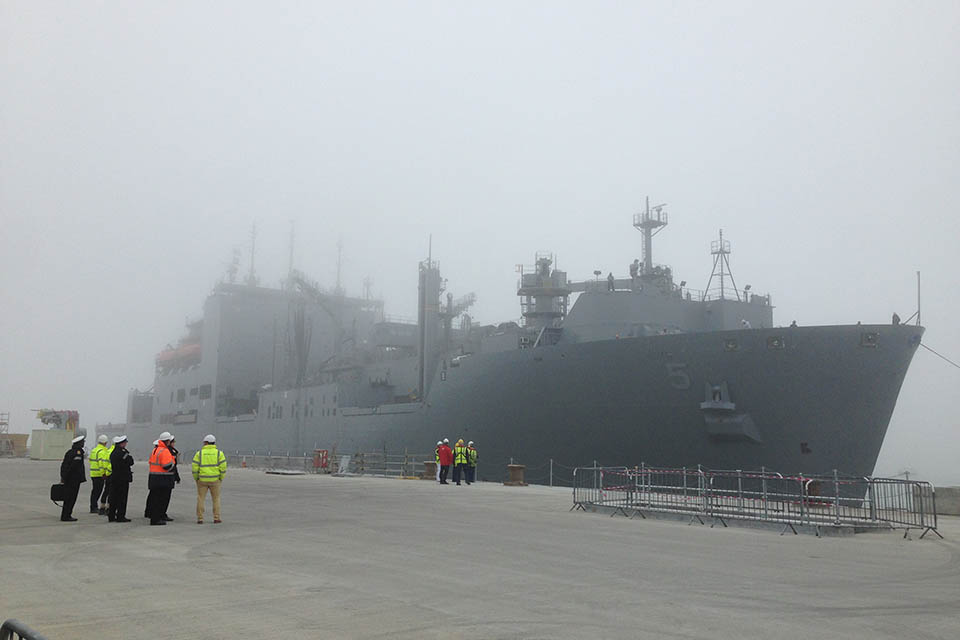This is a major milestone in preparations at the naval base where £100m has been invested by the Ministry of Defence (MOD).

The jetty, parts of which date back over 90 years, has been refurbished to prepare for the first of the Queen Elizabeth Class aircraft carriers. This is in addition to the dredging of the approach channel, inner harbour area and berth in order to make them deep and wide enough for the new ships, moving three million cubic metres of clay, sand and gravel from an area the size of 200 football pitches.
Bespoke navigational lights, a high-voltage electrical supply and specialist carrier-specific gangways, known as ‘brows’ are also being provided as part of the huge programme of works. The Defence Infrastructure Organisation (DIO) has worked with VolkerStevin and BAE Systems to deliver the package of infrastructure needed for the carriers.
DIO Project Manager Philip Wise said:
“I am delighted that the works to the jetty are completed. It is a crucial element of the £100m infrastructure package being delivered to support the arrival of the carriers into their homeport of Portsmouth. We are looking forward to seeing the first of the ships berthing against the new and improved jetty later this year.”
With the core jetty works complete and new specialist equipment delivered, the Naval Base’s preparations for the arrival of the Queen Elizabeth Class (QEC) Carriers are centred on a programme of Familiarisation, Integration and Testing, otherwise known as FIT.
This has been designed by BAE Systems on behalf of the Portsmouth Naval Base Commander and Naval Base staff to prepare equipment, personnel and processes for the arrival of the Queen Elizabeth Class Aircraft Carriers. They provide a valuable means to practice and refine standard operating procedures designed for the QEC and to role-play emergency scenarios.
David Mitchard, Managing Director, BAE Systems Maritime Services said:
“In readiness for the arrival of HMS Queen Elizabeth our team at BAE Systems in Portsmouth has put in place a rigorous testing programme for the new infrastructure at the Naval Base. We have a long expertise in maritime support and servicing and are committed to delivering the most innovative and cost-effective solutions to the Royal Navy for these remarkable ships.”
Today (10th March) saw the start of Phase 3 of the FIT trials, using the visit to the Naval Base of the 40,000 Tonne United States Naval Ship Robert E. Peary for live testing of people, processes and equipment.
Royal Navy Captain Iain Greenlees, the QEC Infrastructure Director said:
“This jetty lies at the very heart of the preparations for the arrival of HMS Queen Elizabeth and the wider development of the Base for this century. It is tangible evidence of how close we are to the dawn of the QEC era and I am proud of the way the Royal Navy, DIO and Volkerstevin have been able to work together on this challenging project to get us ready for today.”
Follow this news feed: MOD





